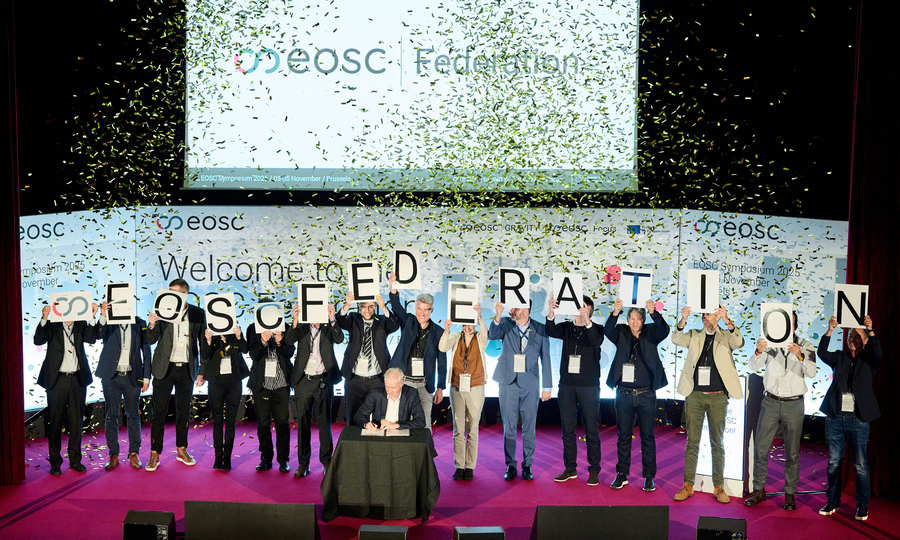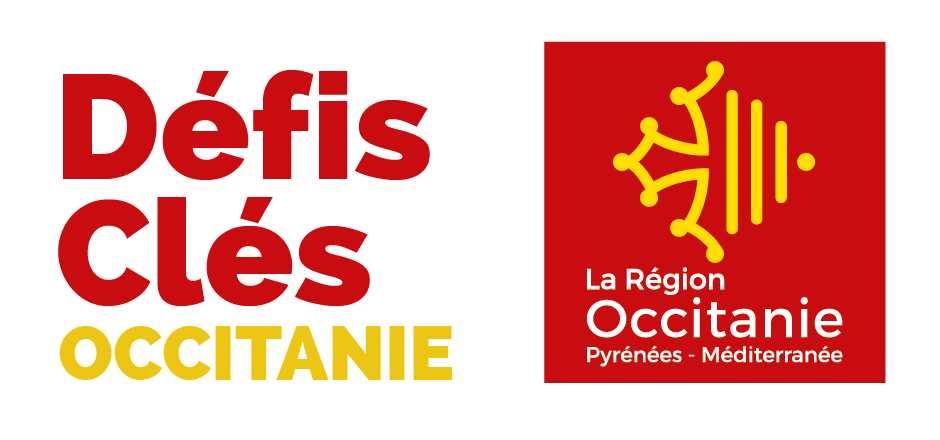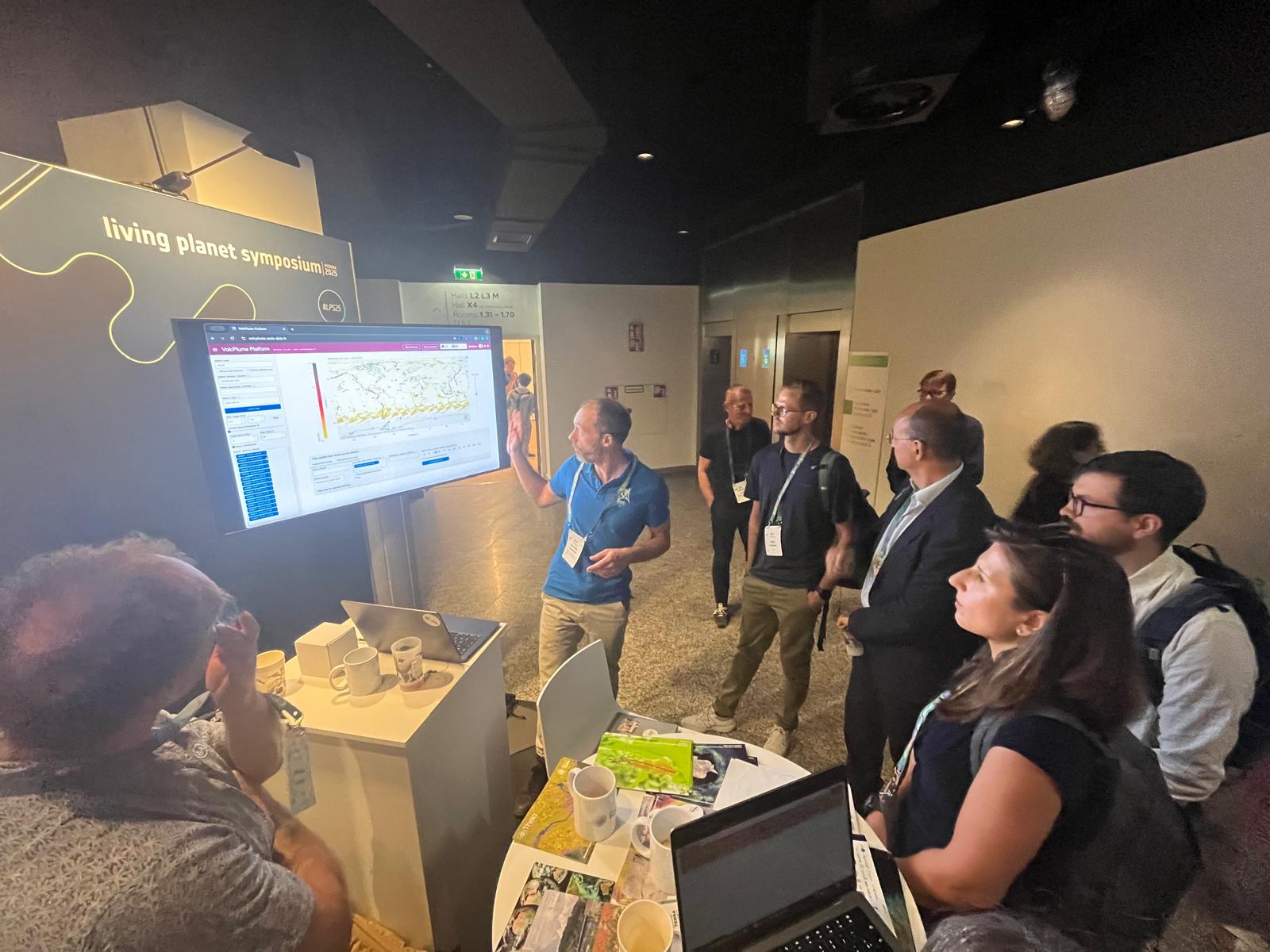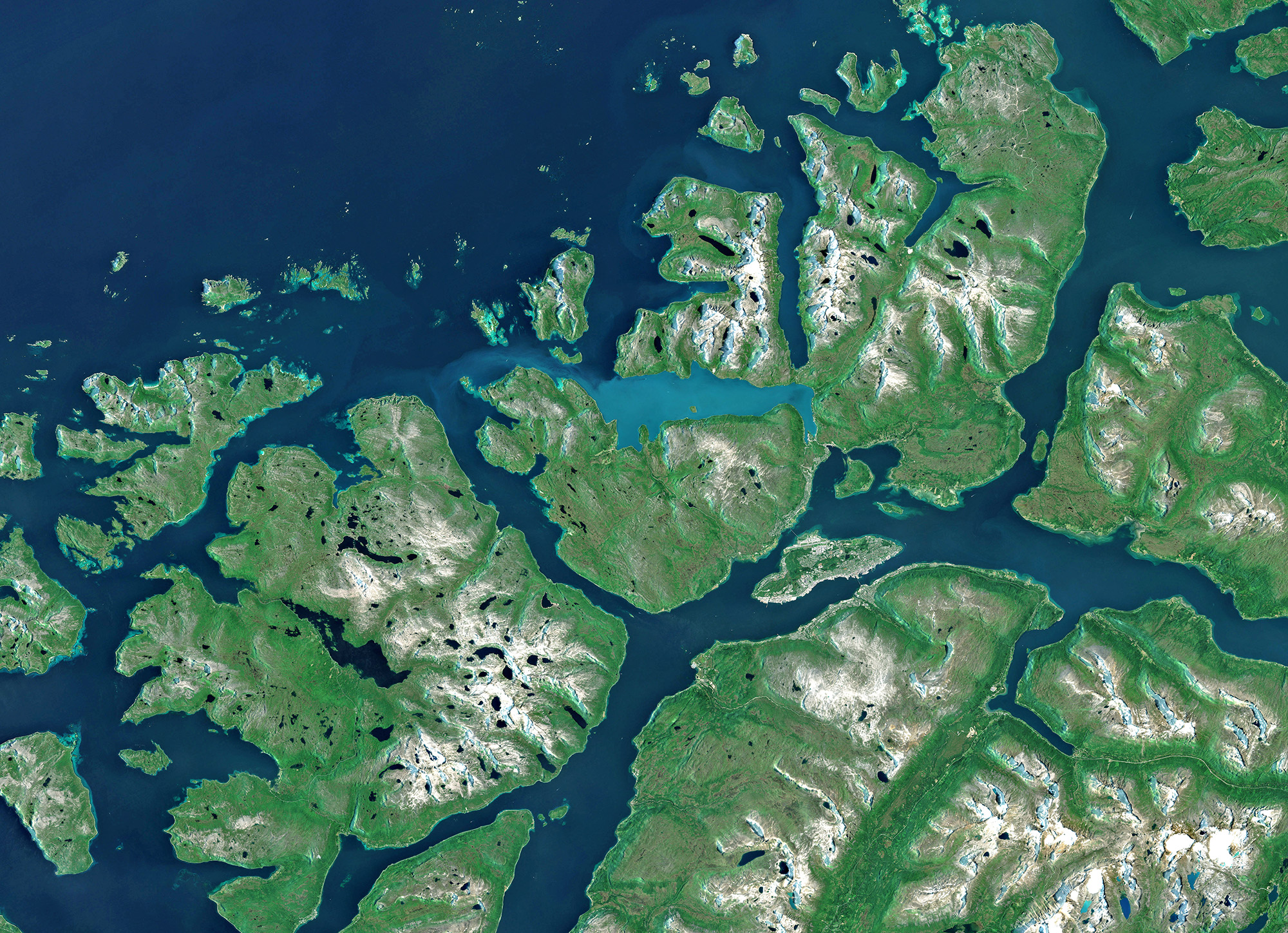
DATA TERRA ENGAGED IN THE FIGHT AGAINST DESERTIFICATION DURING COP16
The 16th Conference of the United Nations Convention to Combat Desertification (UNCCD), known as COP16, will be held from 2 to 13 December 2024 in Riyadh, Saudi Arabia.
Among the main themes and objectives, the conference addresses the themes of droughts, land restoration and sand and dust storms. It also addresses cross-cutting topics such as agricultural practices, land tenure, etc. Its main objective is to accelerate the restoration of degraded lands and develop a proactive approach to droughts.
This is the first Desertification COP held in the Middle East and North Africa region, a strong message that aims to renew global commitment to restore land and build resilience to drought. 40% of the planet’s land area is degraded due to lack of water, affecting 2 billion people.
Thousands of delegates are expected, including nearly 100 ministers from 196 countries and the European Union. COP16 is seen as a crucial moment to accelerate global action against desertification and land degradation.
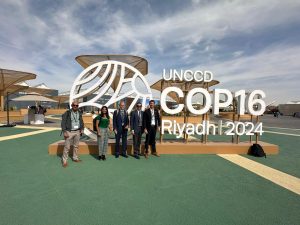
In this context, the CSFD (French Scientific Committee on Desertification) organized a side event on Monday, December 9 from 9:00 to 10:00 (-2:00 GMT Paris) to support data-driven approaches for monitoring and reporting on land degradation and desertification: a means of improving science-policy dialogue under the Rio Conventions, with the following participants:
- Alessandro Rizzo, IRD, DATA-TERRA Research Infrastructure
- Inacio Arruda, Secretary of Science and Technology for Social Development (SEDES), Ministry of Science, Technology and Innovation, Brazil
- Nabil Ben Khatra, Executive Secretary, Sahara and Sahel Observatory
- Eduardo Savio Martins, President, Ceará Foundation for Meteorology and Water Resources – FUNCEME, Brazil
- Alex Zvoleff, Vice-President, Conservation International’s Moore Center for Science
- Lhoussaine Bouchaou, Faculty of Sciences, Ibn-Zohr University, International Water Research Institute IWRI-UM6P, Morocco
The session was organized by CSFD in partnership with DATA TERRA and IRD. The main questions addressed during this session aim to understand the value of data to support the monitoring of global changes and transitions around which the Rio conventions focus.
Do the data produced by research activities contribute to bridging the gap between science and policy to address sustainable development challenges such as desertification and land degradation, climate change mitigation and adaptation, and biodiversity loss?
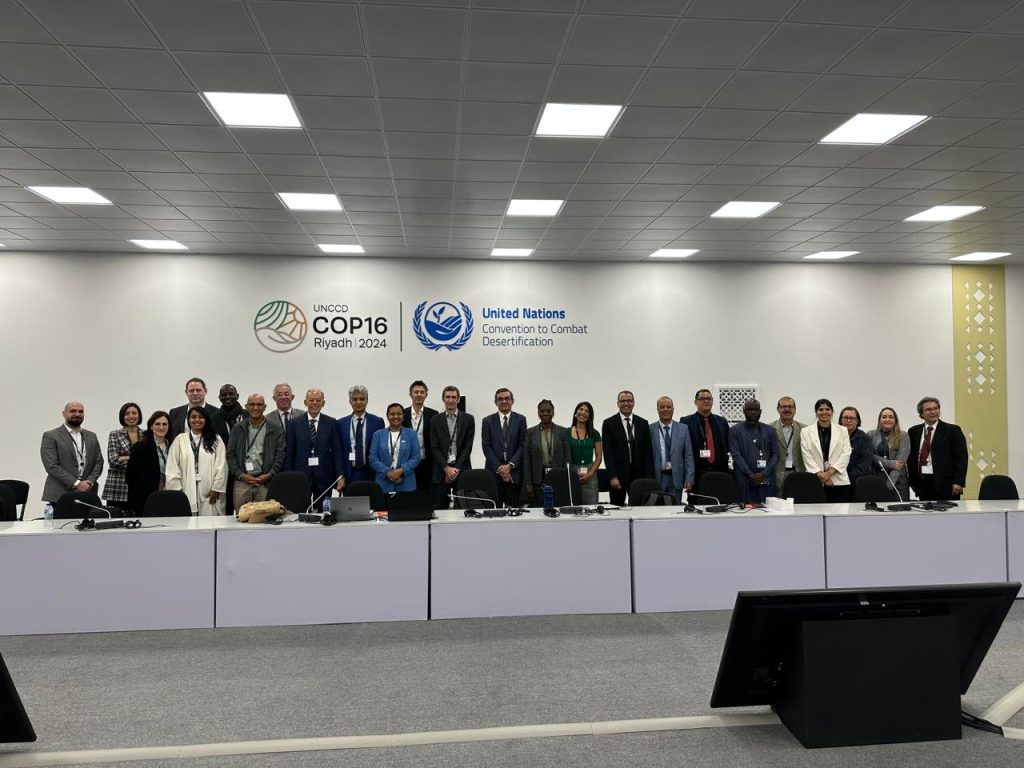
It is clear that having environmental data in an open science framework is crucial, but implementing capacities to better integrate data and more generally knowledge is today very complex to analyze dynamics and provide solutions to global challenges.
Data must be produced, collected, analysed and made available for scientific uses as well as for decision-making. Regional organisations can play a strategic role in combating land degradation and in improving the resilience of dryland ecosystems and local semi-networks, particularly in developing countries.
Interoperability, data coverage and accessibility, as well as knowledge integration are certainly relevant topics for monitoring and reporting on desertification and land degradation. In view of the upcoming COP30 on climate change, the Brazilian delegation is promoting the ICID3 conference to be held in September 2025 in Fortalez (Brazil) and whose objective will be to feed the political framework of the UNFCCC (COP30) with multidisciplinary and collaborative scientific insights.
Research cooperation around data requires co-construction, in particular to improve practices and skills and transfer knowledge between different countries and regions of the world.
For more information:
- https://www.ecologie.gouv.fr/rendez-vous/cop16-desertification
- https://www.unccd.int/cop16
- https://www.unccdcop16.org



